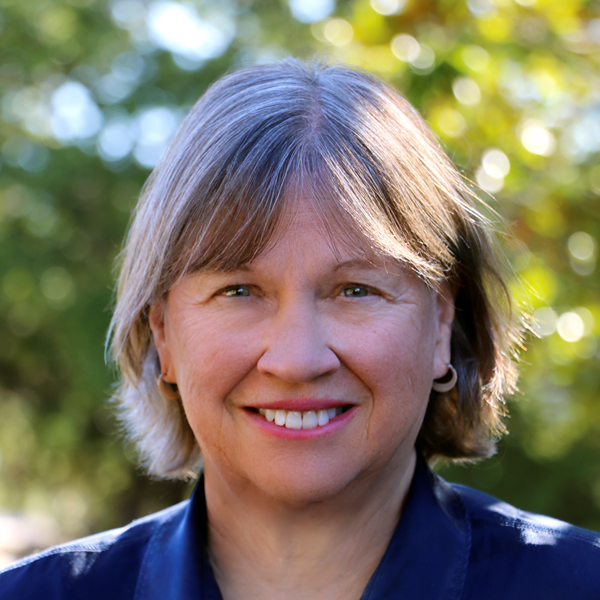I come from a family of proud public school supporters. I attended public elementary, junior high, and high schools and then went to the University of Delaware for a BA and the University of Wisconsin–Madison for a PhD—so I had 22 consecutive years of public schooling! My mother taught as a substitute teacher and as an English instructor at a local public community college. She was a mainstay of our local parent-teacher association. My father was active in public school board politics at the school, district, and state levels, eventually serving as president of our state’s board of education.
My father’s commitment made an impression on me at an early age. He was rarely home in the evenings. After a full day of work as an accountant, he came home for dinner and then went back out to some kind of school board meeting, which might last well into the night or the early hours of the morning. He took seriously the idea that ordinary citizens should assume responsibility for public education. At the same time, I think he relished the debates that were part of school board politics—arguments over competing policies and priorities leavened with the inevitable personality conflicts.
I believe that the public school system is a common good, a foundation of informed citizenship and economic well-being that should be accessible to all children regardless of where they live or the income of their parents. Polls consistently show that Americans support their local public schools; even with all their failings, they remain anchors of community and civic responsibility.
As a college student, I became interested in the history of the property tax as a means of funding public schools. It was a terrible idea from the start, giving rise to wildly unequal districts—ones in affluent areas with high property values and ones in poor areas with fewer taxable resources. Local control of schools is an American tradition, but our hypersegregated residential patterns tend to solidify insidious patterns of inequality. Alternative ways of funding public schools—through state appropriations or a lottery, for example—have not eliminated the wide disparity in the resources available to schoolchildren depending on where they live. Parents in affluent districts can still hold auctions and other fundraisers that enhance a school’s budget, enabling a school to hire more teachers, offer art and music education, fund field trips, purchase computer equipment, and so forth.
The public school system is a common good, a foundation of informed citizenship and economic well-being that should be accessible to all children.
In graduate school, I delved into the history of the origins of American public education. Massachusetts’s Horace Mann and other early supporters of tax-supported public schools aimed to create a “common” system—that is, one common to children all over the country. In an era of high rates of residential mobility, these reformers wanted to ensure that a student could finish second grade in Boston and start third grade the following year in Cincinnati. Yet this system of schooling was uneven and discriminatory from the beginning. Reformers hoped to instruct schoolchildren in the responsibilities of citizenship and hoped to inculcate in children of the laboring classes the self-discipline required of factory work. Black children did not fit into either of these aims; as adults, they would be pushed to the margins of citizenship and excluded from machine work until well into the 20th century. State-mandated systems of segregation systematically denied Black and other minority schools the resources they needed to provide a decent education for their children.
Since the beginning, the public system has had its critics, for legitimate, as well as suspect, reasons—parents deemed schools too secular or too Protestant, too lacking in rigor, or too “diverse” (often code for too many low-income students or students of color). Some parents went outside the public system to seek a different kind of schooling for their children—with religious or denominational schools, private academies, and homeschooling.
One way to denigrate public schools has been to label them “government schools,” a derogatory term suggesting these schools are the product of a collective, or socialistic, impulse—one that takes money from taxpayers (even childless ones) and uses that money to educate children whose parents might not be able to pay for private schools. (The term has gained currency in libertarian and conservative circles—an early adopter was economist Milton Friedman in the 1950s—and continued with Secretary of Education Betsy DeVos in the Trump administration.) According to this line of reasoning, schooling should be a product of the market rather than dependent on taxpayer funding for a “common” system. Those who hold this view favor starving the public schools of adequate funding in the hope that concerned parents will turn to private schools out of sheer frustration.
A passion for public education is commendable, but the use of schoolchildren as political pawns is not.
Schools have always been cultural battlegrounds, whether over the issues of evolution, racial integration, gender roles, dress codes, standardized testing, sports and other extracurricular activities, student privacy, or school prayer. However, the so-called culture wars have assumed a new intensity in 2021. Mask and vaccine mandates (or the lack of them) have generated strong feelings. So, too, has the nature of history education. Again, disputes over curricular matters are not new—white teachers in the former Confederate states objected to textbooks authored by “Yankees” who lauded the outcome of the Civil War, for example—but today, controversies over race, “divisive concepts,” and the meaning of the American Revolution are nationwide in scope. State legislatures and local school boards have entered the fray. We hear of school board sessions and legislative hearings laced with profanity and punctuated by fisticuffs, prompting the installation of metal detectors outside meeting places.
Many Americans remain focused on the national level of politics, yet there is compelling evidence that the real battleground over cultural issues has shifted to the local level. In some cases, national groups are coordinating local attacks on K–12 history faculty determined to teach truth over myth, fact over fiction. These teachers and the administrators who support them remain vulnerable to the demands of misinformed parents and school board members. Reportedly, as many as 165 local and national groups seek to influence school policy related to curricular matters, and at least some have as their aim the delegitimizing of public education altogether. A passion for public education is commendable, but the use of schoolchildren as political pawns is not.
Given this distressing situation, what is a historian to do? Perhaps teachers in your area are open to inviting other, specialized historians into the classroom, either to discuss a topic or to guide a group of students through a primary document. Teachers, parents, and school board members might want to consult Learn from History, a coalition of the AHA and more than two dozen other organizations that aims to combat disinformation and support efforts of educators to maintain the scholarly integrity of their US history courses. School board meetings and other venues provide opportunities for those knowledgeable about history to counteract various misapprehensions about the past. Of course, the ultimate commitment, in terms of contributing time and energy, would involve running for the local school board, in the process paying tribute to two cherished American ideals—citizen participation in local public education affairs and an unfailing quest for the truth, no matter where it may lead us.
This work is licensed under a Creative Commons Attribution-NonCommercial-NoDerivatives 4.0 International License. Attribution must provide author name, article title, Perspectives on History, date of publication, and a link to this page. This license applies only to the article, not to text or images used here by permission.


